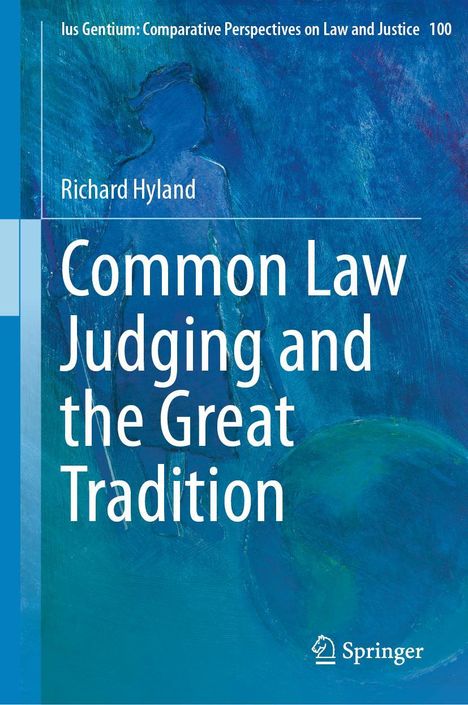Richard Hyland: Common Law Judging and the Great Tradition, Gebunden
Common Law Judging and the Great Tradition
Sie können den Titel schon jetzt bestellen. Versand an Sie erfolgt gleich nach Verfügbarkeit.
- Verlag:
- Springer-Verlag GmbH, 04/2026
- Einband:
- Gebunden
- Sprache:
- Englisch
- ISBN-13:
- 9783032023063
- Artikelnummer:
- 12352771
- Umfang:
- 404 Seiten
- Sonstiges:
- XII, 436 p.
- Erscheinungstermin:
- 7.4.2026
- Serie:
- Ius Gentium: Comparative Perspectives on Law and Justice - Band 100
- Hinweis
-
Achtung: Artikel ist nicht in deutscher Sprache!
Klappentext
Many other books also wrestle with the question this book explores: How do judges decide cases in the American common law? But this is no ordinary law book.
The rules of the common law are grounded in precedent, and yet the disturbing truth is that competing precedents often allow judges to choose from among two or more solutions. So if the rules alone do not decide the cases, which factors prove decisive? This book takes seriously the fact that we do not actually know the answer to that question.
Another surprise is that this uncomfortable insight is a staple of the great tradition of common law writing---from the classic works by Blackstone, Holmes, and Cardozo to the innovative thinking of Duncan Kennedy, Mary Joe Frug, and Patricia Williams. This book moves beyond the usual debates and demonstrates for the first time that these differing accounts can work together to offer a meaningful approach to the challenge of judging.
They all suggest that judges should consider the entirety of the facts and circumstances of each case, together with many other concerns, including some that have long been deemed irrelevant. To assess their collective understanding, this book delves into the facts of a few contracts cases. As it does, it uncovers the lives behind the decisions, the ideas behind the doctrines, and the quiet work of judges deciding under uncertainty.
Common Law Judging is a rare achievement: a book for anyone who has ever wondered how law really works---and what it means to do law well. This is an open access book.
'This is fascinating. Well-written, an important topic, and an intellectual tour de force.' Mark A. Lemley, William H. Neukom Professor, Stanford Law School

